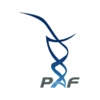Natural History, Physiology, Microbiome and Biochemistry Studies of Propionic Acidemia
Charles Venditti MD PhD
Oleg Shchelochkov MD
National Institutes of Health
Why are we doing this study?
Propionic acidemia (PA) is one of the most common disorders of organic acid metabolism. Newborn screening for propionic acidemia allows doctors start treatment at an early age. However, despite early and intense medical treatment, many patients experience health problems. Patients can have frequent hospitalizations for metabolic crises and develop chronic medical issues such as brain, eye, heart, abdomen, and kidney problems.
To help better understand the health problems patients with propionic acidemia have, we are starting a new study: “Natural History, Physiology, Microbiome and Biochemistry Studies of Propionic Acidemia.” This study will evaluate patients with propionic acidemia to learn more about the genetic and biochemical causes and the medical complications associated with it. We also plan to study how bacteria living in our gut (microbiome) can affect the course of propionic acidemia.
How can patients participate in this study and what will happen during the visit?
Eligible patients will be admitted to the NIH Clinical Center for 3-5 days. Most travel expenses are covered for patients and their care providers. A typical visit will involve a medical interview, physical examination, genetic counseling and consultation with experts in different fields, such as the nervous system, nutrition, rehabilitation medicine and other areas of medicine. Patients will be asked to provide blood, urine and stool samples to help measure function of organs affected by propionic acidemia. We use imaging studies such as X-ray and ultrasound to look for changes in organs inside the body. We may offer additional tests to some patients.
How can I find out more about this study?
You can find our more about this study by visit our the Propionic Acidemia Clinical Trials webpage
https://clinicaltrials.gov/ct2/show/record/NCT02890342?term=propionic&rank=4
Contact information
| If you are interested in learning more about the study please contact us:
or NIH Clinical Center Patient Recruitment and Public Liaison Office 1-800-411-1222 |
